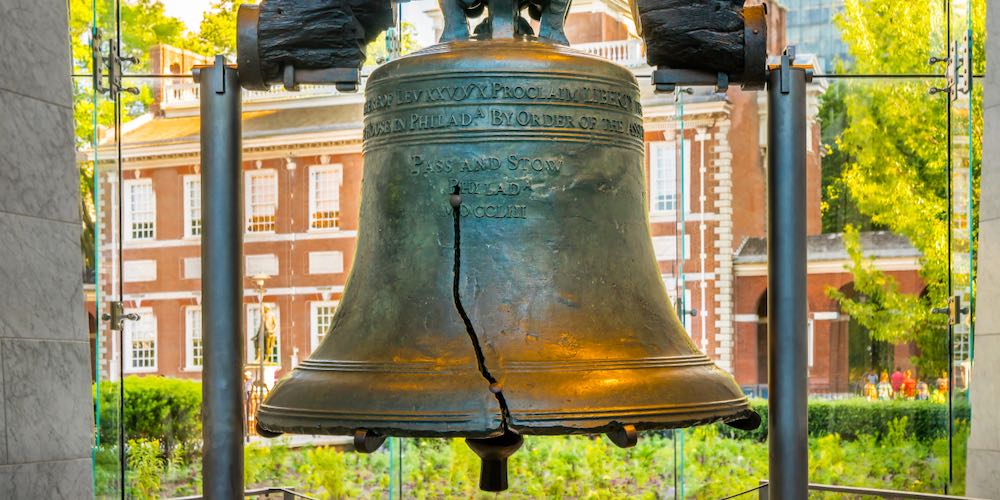Liberty and Loose Ends
It is time to draw our exchanges with Michael Thomas to a close. In Thomas’s most recent reply, “Driving Liberty in the Traffic of Tolerance,” he advances the view that “liberty is supreme because it is ethical but that makes it a poor political principle.” In defense of this, he asserts that “political institutions provide rules. Ethical virtues like liberty emerge in context. Everyone exercises within the liberty they get in each case. In all of my anecdotes, liberty is present in some sense, even if there is no formally recognized and enforced standard in each of them. The institutional rules cannot guarantee liberty, because it requires individual exercise. Liberty’s presence cannot be measured and identified due to its incommensurability between persons.”
This assertion seems most dubious, because it fails to consider three matters.
First, this assertion ignores the context for this entire discussion, which revolves around what ethically legitimates a political/legal order—and in effect, the determination of the conceptual link between what makes a matter of morality a concern for the positive law. This is not merely a descriptive analysis of the political/legal order. The issue is whether we can at least in principle have a basis for subordinating might to right. Or must we settle for allowing positive law or social practices alone to determine in what liberty consists, and thus what one must and must not do? Yet social practices can be intolerant, unless one is willing to say that tolerance (or intolerance) is, ipso facto, whatever social practices declare it to be. But this is to have no standard for tolerance whatsoever. The same can be said about “social practices” determining “liberty” or any other normative term.
Stated metaphorically, is the fence or wall that is erected protecting or excluding? And who is truly being protected or excluded?
Second, this assertion ignores that we are discussing political liberty, not moral liberty. Moral liberty is when one lives in such a way as to be self-governed and not guided by ignorance or vice—that is, one is living in a flourishing or virtuous manner. Though people should respect the rights of others as a matter of the virtue of justice, political liberty is secured when individual rights are protected and preserved by positive law. Political liberty is not as such a virtue of a person, as Thomas seems to think, but the ultimate end or value of a political/legal order. Tolerance is a virtue that serves that end. But tolerance is not the only practice that serves that end. Trust, responsibility, and sociability also do.
Third, this assertion ignores that political liberty cannot be meaningful as a value for determining the rules of a political/legal order if it is understood as merely the absence of external impediments or the ability to do whatever one wants. Liberty is not license. As we have argued, “If this were so, whose choices and wants should be protected when there is a conflict: the person who initiates an action towards someone or the person who is the recipient of the action from someone—the initiator or the recipient? Without some standard for determining whose choices and wants are to be protected, there is no way for liberty in this sense to provide guidance in determining what the political/legal order should protect.” Stated metaphorically, is the fence or wall that is erected protecting or excluding? And who is truly being protected or excluded?
We need to know the ethical case for good fences. That is what individual rights are all about.
Two final points: Thomas appears to insist that politics and ethics be separated. We only hold that they are distinct. There are ethical principles involved in both, but those used to justify a political/legal order should not be conflated with those required for a flourishing, virtuous, just, and righteous life.
Finally, Thomas has seriously misunderstood one of our central claims. He states, “My interlocutors define tolerance as containing a permissiveness for anything, including intolerance.” This is false. In fact, we say the opposite: “Thomas’ tolerant society faces self-referential problems. This ideal society must be intolerant of intolerance.” In other words, what is tolerant needs to be differentiated from its contradictory. The term “tolerance” does not carry its meaning on its back, and a basis for its meaning needs to be found. We attempted to drive this point home when we quoted the following from The Realist Turn:
Liberty is not opposed to there being an ethical limitation on what people may do to one another. Indeed, liberty only exists within the context of such a limitation. The limitations that define liberty can be expressed in the language of rights; indeed, rights are a normative expression of those very limitations.


